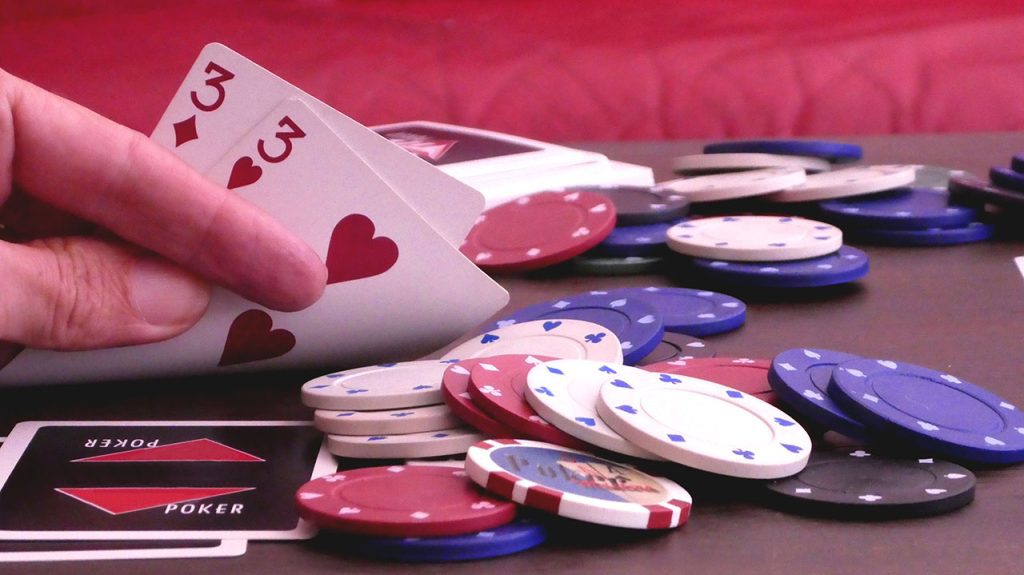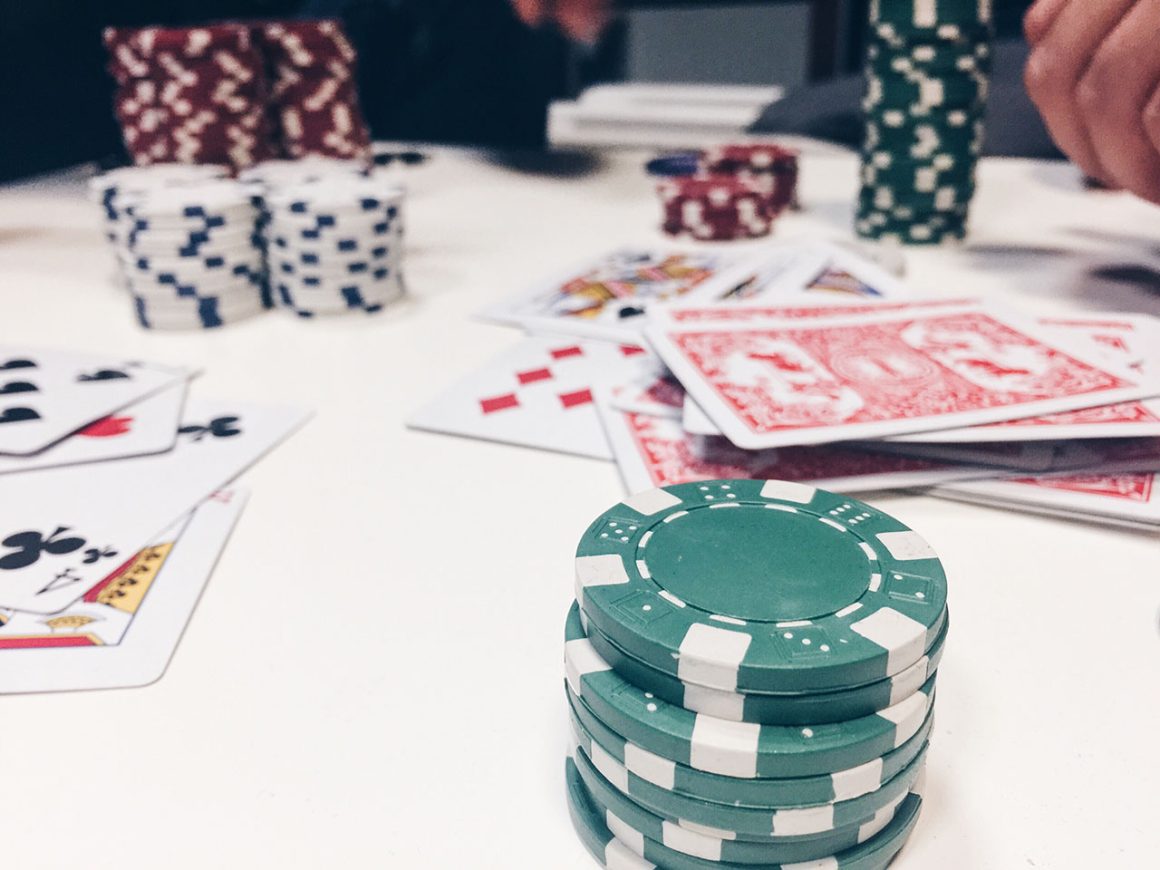Poker, often considered the quintessential card game of skill and strategy, is more than just a game of chance. At its core lies the art of bluffing, a crafty maneuver that can turn the tide of a hand in your favor. Bluffing isn’t just about wearing a stoic expression or tossing chips carelessly into the pot.
It’s a complex dance of psychology, strategy, and timing that can make or break your poker career. In this comprehensive guide, we’ll delve into the world of poker bluffing, exploring the strategies, mind games, and psychology that can help you master this elusive skill.
Understanding Bluffing in Poker
Before we dive into the tactics and techniques of poker bluffing, let’s start by understanding what it means. Bluffing in poker involves pretending to have a stronger hand than you actually do to make your opponents fold their better hands. It’s a high-stakes game of deception and perception, and to master it, you’ll need a strategic mindset and a strong grasp of human psychology.
Tips for Successful Bluffing
Know Your Opponents
Successful bluffing starts with understanding your opponents. Different players have distinct playing styles; recognizing these traits can be a game-changer. Some opponents are tight (they play conservatively), while others are loose (they play many hands). Knowing their tendencies can help you determine when to bluff and when to fold.
Choose Your Spots Wisely
Timing is everything in poker. Bluffing too often or at the wrong moments can be costly. Look for opportunities where the community cards and your opponent’s actions create doubt. For example, if the flop is unfavorable for a strong hand and your opponent hesitates or checks, that may be an ideal time to bluff.
Consider Table Image
Your table image and the perception others have of your playing style can be an asset. If you’ve been playing conservatively for a while, your opponents may be more inclined to believe you have a strong hand when you decide to bluff. On the other hand, if you’ve been bluffing frequently, they might be more skeptical.
Bluffing Techniques
Now that we’ve covered the basics, let’s explore some advanced bluffing techniques that can elevate your poker game.
The Semi-Bluff
The semi-bluff is when you bet or raise with a hand that is not currently strong but has the potential to become strong if certain community cards are dealt. It combines a bluff with a genuine chance of improving your hand.
Strategy
- Choose semi-bluff opportunities when you have drawing hands, like a flush draw or an open-ended straight draw.
- Semi-bluffs can create uncertainty in your opponents, as they might fold better hands if they believe you have a strong hand.
- Be prepared to follow up your semi-bluff with additional bets if you hit your drawing hand on the turn or river.
Overbetting the Pot
Overbetting involves placing a bet that is larger than the current size of the pot. It’s an aggressive tactic meant to intimidate your opponents and make them question their hands.
Strategy
- Overbetting should be used sparingly, as it carries a higher risk. It’s most effective when your opponent is likely to have a strong hand.
- This move can polarize your range, making it challenging for opponents to put you on a specific hand.
- Use overbetting as a surprise tactic to exploit your opponent’s tendencies.
Check-Raising
Check-raising is when you check your hand initially, allowing an opponent to bet, and then you raise their bet. This technique is used to build the pot while disguising your hand strength.
Strategy
- Check-raising is effective when you have a strong hand and want to extract more value from your opponent.
- It can also be used as a bluff to make your opponent fold a better hand.
- Be cautious with check-raising as it can be seen as aggressive, and your opponents might catch on to your strategy if overused.

The Psychology of Bluffing
Bluffing in poker is not just about the cards – it’s about reading your opponents and understanding human psychology. Here are some key psychological aspects to consider:
Poker Faces and Body Language
Maintaining a consistent poker face is crucial. Avoid giving away any physical tells that might reveal the strength of your hand. Conversely, pay attention to your opponents’ body language for clues about their hand strength.
Emotional Control
Bluffing can be emotionally taxing. It’s essential to stay composed and not let frustration or anxiety show. Emotionally stable players are often more successful bluffers.
Table Talk
Engage in strategic conversation with your opponents. Plant seeds of doubt by making subtle comments that suggest you have a strong hand. However, avoid overdoing it, as it may arouse suspicion.
Observation Skills
Actively observe your opponents and their reactions throughout the game. Look for patterns in their behavior, such as how they react when they have strong or weak hands. Use this information to your advantage.
Reverse Psychology
Sometimes, pretending to be weak when you’re strong or acting confident when you’re bluffing can confuse your opponents. Psychology plays a significant role in making them doubt their decisions.
The Importance of Balance
While bluffing is a powerful tool in poker, it’s essential to strike a balance. Over-reliance on bluffing can lead to predictability and make you an easy target for observant opponents. Mix up your gameplay with a combination of bluffs and genuine hands to keep your opponents guessing.
Final Thoughts
Mastering poker bluffing is an ongoing journey that combines strategy, psychology, and a keen understanding of your opponents. It’s not a skill that can be perfected overnight, but with practice, patience, and a commitment to learning, you can become a formidable bluffing artist at the poker table.
Remember that while bluffing is a valuable tool, it should be used judiciously and with careful consideration of the context and your opponents. So, sharpen your poker skills, work on your poker face, and embark on the thrilling adventure of mastering the art of poker bluffing.


Leave a Reply